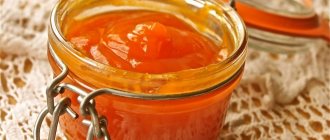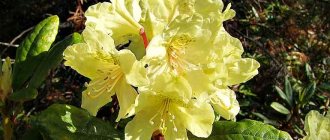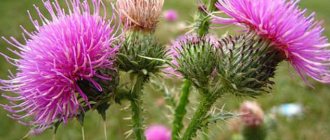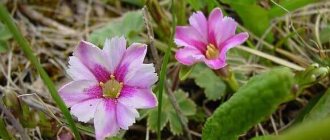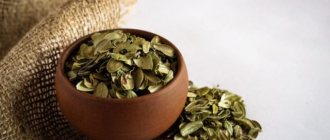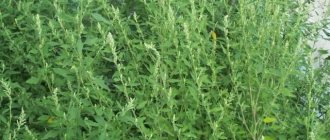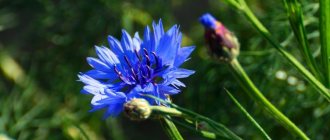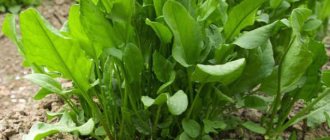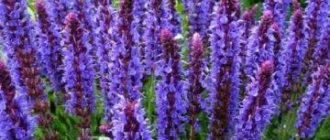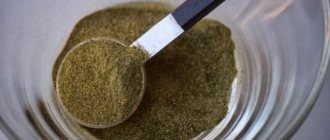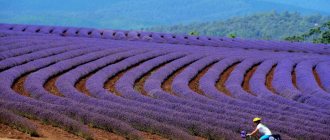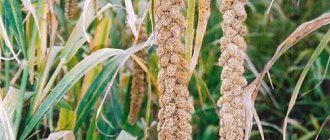Ginkgo biloba is a unique plant that has come to this day from ancient times. The tree became famous for its numerous medicinal properties; medicinal plant materials were used by oriental healers and healers.
It is recommended to use products saturated with useful elements for almost all diseases. Herbal medicines can cope with diseases, increase the effectiveness of drug therapy, and act for preventive purposes.
Before using decoctions and infusions, it is recommended to carefully familiarize yourself with the basic characteristics of the plant, its prohibitions, and study recipes for alternative medicine.
Brief description of the plant, growth
Other names for the tree are stone tree, silver apricot, maiden braids. Due to the age of the plant, in eastern countries ginkgo biloba is often called the dinosaur tree.
The plant has a rather unusual appearance. A tree growing in natural conditions often reaches a height of 40-45 m, while one grown for industrial purposes rarely reaches 15-18 m.
Silver apricot has small fan-shaped leaves located at the tops of the branches. For medicinal purposes, it is the leaves that contain the maximum amount of useful substances that are used.
In spring and summer, the leaves are green, which in autumn changes to a yellow-saffron color. The rhizome of the tree is powerful, easily overcomes heavy layers of soil, penetrating deep into the soil, extracting the moisture necessary for growth and development. Roots can grow even from the lower buds located on the trunk.
Under natural conditions, Ginkgo biloba grows only in one of the provinces of China. The tree is often cultivated for industrial purposes and thrives in warm regions of Europe, East Asia, and America. The largest plantations of the plant are located in France (Bordeaux region) and the USA (South Carolina).
A little botany
Ginkgo biloba is not a herb, but the world's oldest tree, whose history dates back to the Mesozoic era. An adult plant reaches a height of 30-35 meters, especially large specimens can be up to 45 meters. The young tree has a pyramidal shape; later the crown expands. The leaves of the plant have a characteristic appearance - wide, fan-shaped, divided into two lobes. It is thanks to this shape that the tree received the name Ginkgo biloba. The homeland of the plant is China. Ginkgo biloba has been widely used in Chinese folk medicine for many centuries. For medicinal purposes, dried leaves of the tree, various infusions and decoctions of seeds are used.
Doctor's Best, Ginkgo Extra Strength, 120 Vegetable Capsules
704 ₽
Buy at a discount
In Europe, people learned about Ginkgo biloba at the end of the 17th century, when the German botanist Kaempfer brought the fruits, nuts and seeds of the plant obtained from the territory of one of the Buddhist temples. The use of plant materials in medicine began in the second half of the 20th century. Now the plant is under protection, so unauthorized cutting and use of raw materials is prohibited. For industrial purposes, trees are grown in special areas; the largest plantations in area are located in the USA and France.
The most useful are the leaves of the ginkgo biloba plant, which can be collected throughout the growing season (May-October). The maximum amount of active components is contained in raw materials harvested in early autumn. After the leaves are dried, they are processed to produce a concentrated extract. From 50 kg of raw materials it is possible to extract only 1 kg of pure substance. Roasted seeds and nuts of Ginkgo biloba can be used in folk medicine.
Procurement of plant raw materials, rules of drying, storage
For treatment, it is recommended to use only tree leaves collected during the entire growing season. If possible, it is better to stock up on leaves that have already changed color - it is believed that the most useful plant material is saffron in color.
Carefully cut off the leaves with pruning shears, rinse the house with cold water, and allow excess liquid to drain. Plant raw materials should not be crushed - drying should be carried out entirely. Spread in a thin layer on wire racks or baking sheets (pre-coat metal products with parchment).
For drying, it is better to use an oven; in hot sunny weather, the process can be carried out outdoors. A prerequisite is protection from direct sunlight; the leaves should be dried under covered, ventilated canopies.
Pack the finished plant material in glass or plastic containers. If it is possible to store ginkgo biloba in a dry, ventilated room, it is allowed to place the dry leaves in thick linen bags. During storage, be sure to check the quality of the raw materials, sort them, and re-dry if necessary.
Useful qualities of the plant
Ginkgo biloba is a plant famous for its antiseptic, antibacterial, and antifungal properties. Due to the high content of useful elements, plant raw materials have the following effects on the human body:
- improves blood composition, thins, prevents the formation of blood clots;
- prevents aging, rejuvenates cells;
- activates blood flow;
- increases potency, relieves inflammatory processes affecting the genitourinary and reproductive systems;
- normalizes cholesterol levels;
- strengthens blood vessels, increases the elasticity of the walls, prevents varicose veins;
- increases brain activity, concentration, memory;
- reduces the risk of developing heart and system diseases;
- stops the spread of malignant tissues, prevents the degeneration of benign cells;
- has a beneficial effect on the condition of the skin - increases elasticity, smoothes, evens out the facial relief;
- destroys harmful bacteria and pathogenic organisms;
- breaks down fatty tissue.
Home remedies will also be of considerable benefit for cellulite, swelling, and sagging dermis. Active components tighten the skin and remove excess fluid.
Contraindications and potential side effects
The ginkgo biloba plant has a tremendous and noticeable effect on the body of women and men. Therefore, before taking plant nutritional supplements, it is highly advisable to consult a doctor.
For most adults, the risk associated with consuming the plant is relatively low, but there are cases where ginkgo biloba can cause serious harm.
A contraindication for consuming the plant is the presence of an allergy to plants containing alkylphenols. In this case, possible side effects may be:
— Nausea — Diarrhea — Dizziness — Headaches — Abdominal pain — Rash/allergic reaction
A contraindication for the use of ginkgo biloba is also the use of blood thinning medications (warfarin, heparin, aspirin). The plant has the potential for adverse interactions with these types of medications.
Concomitant use may increase the risk of bleeding.
Ginkgo biloba is contraindicated if you are taking the following medications:
— Blood thinners (warfarin, aspirin) — Antidepressants and sedatives (Prozac, Zoloft) — Antipyretics (ibuprofen, Tylenol)
As with any dietary supplement, it is important to consult with your doctor before taking ginkgo biloba and discontinue use if you experience any negative side effects or reactions.
Ginkgo biloba extract
Pharmacies often offer tree leaf extract, available in the form of tablets and capsules. Price – 260-270 rubles. It is recommended to use the drug independently or as a complex therapy for a number of body problems, including:
- suffered traumatic brain injuries;
- age-related changes in the brain;
- nervous disorders, frequent depression, stress, sleep disorders;
- diseases of the circulatory system;
- frequent headaches, dizziness;
- problems with memory and attention.
Article for you:
Medicinal properties of the herb hernia and its use in folk medicine
Take the drug twice a day, dosage – 1 capsule. The duration of treatment is three months. If necessary, it is allowed to repeat the course, but only after a preliminary medical examination and consultation with a specialist.
The drug has several contraindications. It is forbidden to take pills for epilepsy, before surgery (the active components of the medicine increase the risk of severe bleeding).
Giving the drug to children (under 10 years of age) is also not recommended - it can cause allergies and irritation.
During pregnancy, it is recommended to take the drug only with the permission of a doctor. Breastfeeding women should also use tablets after prior consultation with a specialist.
Instructions for use
Ginkgo biloba is available in the form of capsules and syrup. Despite the consistency of the product, when using it, first of all, you need to take into account the content of the active substance, which is measured in milligrams (mg).
The minimum duration of use is 3 months . The optimal dosage of the active substance in the drug used is 60-120 mg per day. This dosage should be divided into 2-3 doses. After 3 months, it is necessary to take a break for the same period, then the therapy should be repeated according to the considered scheme. For better absorption, it is recommended to take the substance with meals.
When undergoing treatment with capsules that contain ginkgo biloba, you should remember that they cannot be chewed and it is important to swallow them whole.
Reduslim - a drug for weight loss
Reduslim is the most effective product containing ginkgo biloba extract, recommended for quickly burning subcutaneous and internal fat. The cost of packaging is 140-150 rubles.
The drug normalizes the amount of hormones, reduces appetite, activates metabolic and digestive processes, and breaks down fat cells.
The medicine has a cumulative effect - the active components are concentrated in the body, allowing the effect to be maintained for many years, preventing the formation of new fat deposits.
It is recommended to take only one tablet per day. Take with plenty of water (at least 100 ml). To increase the effect, follow simple rules - slightly adjust your diet (reduce the consumption of fatty, sweet foods), increase physical activity (walk more, do gymnastic exercises at home).
Drink 2-3 liters of cool water per day - the liquid helps break down fatty tissues and protects against intoxication.
There are few prohibitions on the use of the drug. It is forbidden to use the tablets for pregnant, lactating women, children, allergy sufferers, and diabetics. If the body is hypersensitive, you will also have to stop using the medicine.
Be sure to monitor the reaction to the components, especially after the first doses. Irritation on the skin, bouts of vomiting, severe nausea, disruption of the digestive organs are signals to immediately stop the course.
Beneficial effects of ginkgo biloba on the body
Let's consider the proven areas of use of ginkgo biloba, where this plant shows its most impressive properties.
Protects and improves cognitive health
Ginkgo biloba is a well-known nootropic. Research suggests that the effects of ginkgo biloba may help protect against cognitive decline and boost brain function, especially for people with Alzheimer's disease, dementia, or vascular problems caused by cerebral infarction (loss of blood flow in the vessels of the brain).
It is even useful in treating cerebral insufficiency, a condition characterized by chronically low concentration, confusion, decreased physical performance, fatigue, headaches, and mood changes.
Researchers have found that the beneficial brain-boosting effects of ginkgo biloba are based on the fact that it is an effective anti-inflammatory agent that increases antioxidant activity, reduces oxidative stress, and improves blood circulation—all important factors for maintaining cognitive health.
A 2021 clinical study conducted at seven hospitals in Jiangsu Province in China found that ginkgo biloba extract in combination with aspirin treatment reduced acute cognitive and neurological deficits after acute ischemic stroke. The study was conducted on 348 patients, the control group received 100 mg of aspirin daily, and the test group received 450 mg of ginkgo biloba along with aspirin. Tests showed that the plant group scored significantly higher on cognitive assessments and their cognitive control improved.
When researchers from the Institute of Medical Psychology at the University of Munich tested the effects of ginkgo on mental performance in healthy adults over a four-week period, they found significant differences in self-rated mental health as well as self-rated quality of life between those taking ginkgo and the placebo group. This is true, although there were no significant differences between the two groups in terms of overall health.
The group taking ginkgo had improved mobility and emotional health, and reported no known drug-induced side effects or intolerances. There were no serious side effects observed in the study, suggesting that ginkgo may be a safe and effective way to boost mental performance with little risk.
Other evidence, however, suggests that this protection against cognitive decline does not always translate into otherwise healthy older adults.
May improve symptoms of dementia and Alzheimer's disease
Scientific literature suggests that ginkgo biloba helps people experiencing cognitive decline in people with dementia or Alzheimer's disease.
Most studies have examined the effect of ginkgo on reducing symptoms of Alzheimer's disease in patients already undergoing standard treatment with cholinesterase inhibitor (ChEI) drugs. But when groups of patients taking additional ginkgo supplements are compared with groups not taking ginkgo combination therapy for at least one year, significant differences are reported in both cognition and quality of life, as measured by Alzheimer's disease scores . Assessment Scale (ADAS-Cog) and Activities of Daily Living Scale (ADL).
Overall, it seems clear that the effects of ginkgo biloba on enhancing cognition and memory are most pronounced in patients with dementia and/or Alzheimer's symptoms.
Helps fight anxiety
One high-quality clinical study found that a higher dose (up to 480 mg) of ginkgo biloba reduced symptoms of generalized anxiety disorder at the end of four weeks. The researchers found that the highest dose was marginally more effective, and that symptom reduction did not reach statistical significance until the full four-week period had passed.
However, ginkgo biloba does not appear to have an effect on depression or other mood disorders.
Combats PMS symptoms
Some early studies have shown the positive effects of taking ginkgo in reducing PMS symptoms such as mood swings, headaches, anxiety, fatigue and muscle pain.
One 2008 study published in the Journal of Alternative and Complimentary Medicine compared the effects of ginkgo biloba in two groups of women who were similar in terms of demographic characteristics and overall severity of PMS symptoms. After a six-month ginkgo intervention, there was a significant reduction in the overall severity of physical and psychological symptoms in both the group receiving 40 mg daily ginkgo extract and the placebo group. However, the ginkgo group had a higher percentage of improvement (23.7%) compared to placebo (8.7%).
An earlier clinical study from 1993 found similar results. Although symptoms were similar in the placebo group compared to the test group, by the end all participants taking ginkgo biloba experienced a significant reduction in PMS symptoms that was not seen in the placebo group.
Helps maintain eye health
Although more evidence is still needed, ginkgo appears to be beneficial for eye health. A Cochrane review examined the results of ginkgo biloba in reducing the risk of age-related macular degeneration through platelet-activating factors and preventing membrane damage caused by free radicals. There hasn't been much research done yet, but the results so far suggest that ginkgo biloba may improve vision. It is unclear whether this is truly preventive for age-related macular generation.
Another unexpected benefit may be ginkgo's ability to reduce symptoms of red eye or pink eye. This is an infection that can be caused by both viruses and bacteria and often clears up on its own within 10 days. Compared with placebo eye drops, drops containing ginkgo biloba extract reduced red eye symptoms caused by allergies.
Helps prevent or treat ADHD
One study suggests that ginkgo biloba may be somewhat effective in reducing ADHD symptoms in children. Each child in a group of 50 people diagnosed with ADHD was given up to 120 mg of ginkgo per day, which resulted in a reduction in ADHD symptoms. However, the supplement did not outperform methylphenidate (Ritalin), suggesting future trials at higher doses are needed.
May improve libido
So far, the results have been somewhat conflicting, but it seems plausible that ginkgo biloba has some effect on libido by helping blood flow more efficiently and relaxing smooth muscle tissue.
Interestingly, the most significant finding to date has been the potential for treating sexual dysfunction caused by psychotropic drugs used to treat depression, particularly SSRIs. First open-label clinical trial, ginkgo biloba improved sexual function (especially in women due to SSRI side effects.
Unfortunately, subsequent studies did not yield the same result. Scientists aren't sure if they can replicate the results of the first study, but some data seems promising.
Helps treat migraines
In younger migraine sufferers, ginkgo biloba may reduce the frequency and severity of migraines. The initial study observing these effects found that it took about three months to see significant changes. Improvements continued to increase in the following months.
Another study published in 2009 showed similar changes in women with migraines. The researchers gave patients a combination of ginkgo biloba, vitamin B2 and coenzyme Q10 for a total of four months (after two months during which people stopped their current medications). Migraines were completely gone in more than 42% of study participants by the end of the fourth month, while the remaining participants saw partial improvement in their symptoms.
Reduces symptoms of altitude sickness
Climbing mountains causes headaches or other symptoms of altitude sickness (also known as altitude sickness). Scientists still don't understand why ginkgo biloba has been shown time and time again to reduce symptoms of acute mountain sickness when taken before a climb. The effective dosage for treating symptoms of mountain sickness is 240 mg, taken five days before mountaineering.
Improves sleep quality
In many cases, it appears that ginkgo biloba may help improve sleep quality without affecting REM sleep function. This benefit is due to the antioxidant activity of ginkgo. For people who are healthy but cannot sleep, 240 mg of ginkgo biloba per day may improve subjective sleep quality.
Ginkgo biloba significantly improves sleep for those who lose sleep while taking trimipramine, a popular antidepressant.
Relieves Fibromyalgia
Some studies have shown that supplementing CoQ10 and ginkgo together improved the quality of life of people diagnosed with fibromyalgia, a nervous system disorder. Fibromyalgia is a widespread muscle pain, usually accompanied by fatigue, headaches and problems sleeping, anxiety and depression. Ginkgo biloba can be used as a natural treatment for fibromyalgia.
May Support Heart Health
A small but well-designed study among people at high risk of cardiovascular disease found that patients on ginkgo biloba had a decrease in the accumulation of atherosclerotic plaque (which leads to atherosclerosis), as well as oxidation of LDL cholesterol levels. The main benefit of ginkgo biloba for heart health lies in its antioxidant capacity. Taking this supplement increases the activity of some of the most powerful antioxidants in the body, superoxide dismutase and glutathione.
Increases the effectiveness of treatment of schizophrenia
Although the effect is not considered significant, ginkgo biloba appears to be effective in reducing the positive and negative symptoms of schizophrenia when used as an adjunctive treatment to antipsychotic medications. Ginkgo biloba's action may also help improve response to these medications for patients who are considered "treatment resistant." Dosages range from 240 to 360 mg per day in various studies testing this effect.
Promotes Healthy Skin
Ginkgo biloba helps improve skin quality in several different ways when taken regularly.
On the one hand, supplementing with ginkgo biloba causes a small but significant improvement in the symptoms of vitiligo, a pigmentation disorder that causes white patches on the skin. At a dose of 120 mg per day, participants in two studies saw noticeable skin repigmentation and a reduction in the size and spread of their lesions.
In the form of a face cream, the flavonoids from Ginkgo biloba caused a very noticeable difference in skin smoothness/roughness, wrinkles and hydration. Skin hydration was the most noticeable, increasing by almost 28% overall. Although this was only one study with a small sample size, it suggests that using a face cream containing ginkgo biloba may help slow down aging naturally.
Tea for men
Ginkgo biloba is a plant recommended by alternative medicine for the stronger sex. An aromatic drink based on plant raw materials increases potency, reduces the risk of developing diseases of the genitourinary and reproductive systems, and relieves inflammatory processes in the prostate.
Herbal tea also has a beneficial effect on the heart and vascular system. Step-by-step folk recipe:
- Mix ginkgo biloba, honeysuckle (take the components equally - 10 g each).
- Bring a glass of water to a boil and steam the plant mass.
- Place the container on the stove, boil for 5-6 minutes, remove, wait for cooling.
- Perform straining.
Divide the prepared drink in half. Drink one part in the morning before breakfast, the second before going to bed. It is forbidden to add sweet ingredients (honey, sugar); while improving the taste of the tea, the amount of nutrients will decrease and the effectiveness of the effect will decrease.
It is recommended that folk treatment be carried out in courses lasting 30 days. Take breaks for 1-2 months. The results are noticeable after the first course - male strength increases significantly, a general improvement in the functioning of systems and organs is felt.
Chemical composition of ginkgo biloba
The medicinal properties of the ginkgo biloba plant are due to its rich chemical composition. Thanks to them, the leaf part is often used to make restorative teas, tablets and solutions. The composition of the plant is represented by the following substances:
- amino acids;
- thymine;
- ginkgolic acids;
- condensed tannins;
- micro- and macroelements (phosphorus, magnesium, iron, titanium, selenium);
- benzoic acid;
- flavonoids.
The task of condensed tannins is to relieve the inflammatory process. Amino acids take part in metabolic processes, promoting weight loss. Flavonoids produce a pronounced antioxidant effect, protecting the body from the harmful effects of toxins. Benzoic acid exhibits antibacterial and antifungal effects. But at the same time, it increases the load on the kidneys.
Ginkgo biloba decoction for weight loss
Despite the numerous medicinal qualities of the tree, plant raw materials are most often used in order to get rid of extra pounds. Some substances contained in the leaves effectively break down fat cells, promote their elimination, and protect against re-gain of excess weight.
The main advantage of products used at home is safety. The herbal medicine affects only fatty deposits without affecting internal organs.
They also note a beneficial effect on the skin - even with intensive getting rid of extra pounds, cellulite, sagging, and sagging do not appear, the dermis is effectively tightened, acquires elasticity and firmness.
To prepare a decoction, mix primrose flowers (15 g.), Ginkgo biloba leaves (20 g.). Chop the plant components with a sharp knife and place in a container for steaming.
Boil water (500 ml), steam the prepared pulp, stir. Leave to brew, strain after a quarter of an hour.
Article for you:
Sage: medicinal properties and contraindications
After cooling, store the product in the refrigerator. Take three times a day, dosage – 120-150 ml. It is advisable to take it before a meal. Throughout the day, drink a lot of cool, clean water - the liquid normalizes digestion and promotes the removal of fat cells.
It is forbidden to take a fat-burning drink for more than a month. If it was not possible to completely correct your figure, take another course, taking a break of 1-2 weeks.
Contraindications for use
The main contraindication for taking ginkgo biloba is hypersensitivity to the extract. But, taking into account the peculiarities of the effect on the circulatory system and the body as a whole, it is necessary to refrain from using this drug if the following conditions are relevant:
- Peptic ulcer of the stomach, duodenum.
- Bleeding of unknown origin.
- Early period after childbirth, surgery.
- Presence of an implanted pacemaker.
- Predisposition to myocardial infarction, early period after it.
- Reduced blood clotting.
- Acute cerebrovascular accident.
- Reduced blood pressure levels.
Ginkgo biloba is not used in pediatric practice when the child’s age does not exceed 14 years.
Despite the numerous positive properties of this plant, the ability to eliminate diseases and prevent them, it should not be used during pregnancy. Organic acids and other potent components easily cross the placental barrier and can harm the child and cause intoxication. Therefore, obstetricians and gynecologists do not recommend consuming ginkgo biloba during pregnancy.
The plant extract saturates mother's milk and may cause an allergic reaction in the newborn or other adverse effects on his health. Therefore, ginkgo biloba is not consumed during breastfeeding.
Conditional contraindications for taking the plant are epilepsy, erosive gastritis, increased risk of developing intracranial hemorrhage.
Ginkgo biloba for headaches
For frequent headaches, traditional medicine suggests using a rich infusion of leaves as compresses. The product relieves unpleasant discomfort in the forehead, temples, and back of the head, and improves general condition.
Homemade medicine is practically safe, the only prohibition is increased sensitivity of the skin, a tendency to rashes and dermatitis.
Grind the leaves of the plant (grind dry plant materials using a mortar). 10 gr. Steam the vegetable raw materials with 100 ml of boiling water and leave for half an hour. Strain, if the liquid has cooled down, warm it up a little.
Soak a soft napkin in warm liquid, place it on the painful area (back of the head, frontal part), leave for a quarter of an hour. If you have a headache in your temples, you can rub the infusion into the skin - moisten the dermis generously, massage with light movements, no need to rinse with clean water.
Unpleasant discomfort usually disappears immediately after the procedure. It is recommended to strengthen the result - apply the infusion after 2-3 hours.
Rejuvenating cocktail
It is not for nothing that Ginkgo biloba is considered the tree of youth - a drink is often prepared based on plant raw materials that can preserve youth, delay the aging of the body for a long time, smooth out wrinkles, and refresh the complexion.
A cocktail rich in vitamins also increases the body’s defenses, has a beneficial effect on all systems, and activates organ functions.
Mix dry leaves of ginkgo biloba, hawthorn, Chinese lemongrass, rowan fruits (take 10 grams of ingredients). Pour the plant mixture with cold water (300 ml) and leave for half an hour. Place on the stove, wait for the liquid to boil, boil, avoiding strong boiling, for 5 minutes.
Remove, cover tightly, and wrap with a towel to enhance the useful elements. Leave to infuse, strain after half an hour.
Use the anti-aging product only in the morning, instead of your usual coffee. Drink the prepared liquid at one time, before breakfast.
The duration of the course is one month. It is recommended to repeat the treatment every six months - one course is enough to look several years younger and improve the functioning of systems and organs. Do not overuse, you need to give the body time to rest.
Beneficial properties of ginkgo biloba
Ginkgo biloba leaves contain a huge amount of useful substances, but among them there are those that deserve special attention:
- The terpinoid compound consists of bicarbonate and five types of lactone, which are collectively given the scientific name ginkgolides
- Flavonoid Compounds (Flavonoids) - Ginkgo leaves contain about 20 types of flavonoid glycosides and many other types of bioflavonoids
Thanks to these two groups of compounds, taking ginkgo biloba leaf supplements stimulates the circulatory system, which can help strengthen the functioning of the brain, eyes, ears and legs.
Ginkgo biloba seeds, popular in Thailand, have powerful antibacterial and antifungal properties. But at the same time, they are toxic and in case of overdose they can cause convulsions and even loss of consciousness.
According to recent research outlined in the book “The Vitamin Bible” (author Dr. Earl Mindell), ginkgo biloba has the following beneficial properties:
- Ginkgo biloba leaf extract is an excellent antioxidant
- Helps slow aging and prevent cancer
- Stimulates blood circulation. Provides oxygen to the brain, heart and various organs in the body
- Nourishes the brain. Prevents dementia
- Increases concentration and helps improve memory and thinking processes
- Helps patients with Alzheimer's disease
- An effective antidepressant for patients who do not respond to conventional treatment
- Helps reduce cramps or muscle pain
- Regular use of ginkgo biloba relieves symptoms of PMS and eliminates nagging lower pain in women
- Helps reduce dizziness, loud noises, or ringing in the ears
- Helps with sexual dysfunction, improves potency
- Prevention and treatment of degenerative diseases of the retina
- Improves eye health in diabetes
- In asthma, prevents contraction of bronchial muscles
The following is information from a medical blog (translated from Thai).
Treatment of high blood pressure, depression, cerebral atherosclerosis
Ginkgo biloba contains a number of elements that can normalize blood pressure, improve the functioning of the nervous system, and cope with atherosclerosis. The treatment is simple, the main thing is to stock up on high-quality plant materials (collect the leaves yourself or purchase them at the pharmacy).
For treatment you will need a powder made from dry tree leaves. Grind the plant material with a coffee grinder or mortar. There is no need to steam, simmer, or infuse homemade medicine - the powder is used in its pure form.
Before each meal (three times a day) consume 10 grams. powder. Do not swallow immediately - chew the product thoroughly and wash it down with cool water.
The duration of the course is one month. After a break (2 weeks), take the medicine again. It is recommended to take a three-course course - this is enough to normalize blood pressure, strengthen the nerve system, and improve brain function.
Tincture for men
If there are no contraindications to taking alcohol-containing drugs, it is recommended that men prepare an alcohol tincture to increase potency. A home remedy will improve the functioning of the reproductive and genitourinary systems.
Regular use of herbal medicine, according to alternative medicine, also has a beneficial effect on the condition of sperm - the composition of seminal fluid improves and sperm motility increases. Preparation:
- Fill a clean glass bottle one-fifth of its volume with dry tree leaves.
- Fill with vodka and high-quality homemade pervach to the top, seal tightly.
- Shake the bottle several times and leave to infuse in a cool room.
- Straining should be done after two weeks; during this period, it is recommended to shake the contents of the bottle several times; do not open it.
- Fill a clean container with the strained liquid and store in the cold.
It is not recommended to use the tincture in its pure form - you will need to prepare a solution. Dilute 10-15 drops of the drug with cold water (100 ml), drink at one time.
Article for you:
Woodlice grass: medicinal properties and contraindications, use in folk medicine, cosmetology, cooking
Use the composition twice a day, always before meals. The treatment should be continued for a month; if you need repeated folk treatment, take another course after a break of 10-12 days.
Instructions for the use of ginkgo biloba in traditional medicine
For preventive purposes, you can purchase ginkgo biloba tea. It is not difficult to prepare a tasty and healthy drink. A tea bag (or one teaspoon) is poured with hot water, the temperature of which has reached 70-80°C. Do not use boiling water to brew tea. You can enjoy the drink for four weeks. Then it is recommended to take a break of 10-14 days.
But if the purpose of using ginkgo biloba is to treat diseases, then traditional medicine recommends resorting to more effective means. Of course, after consultation with your doctor.
Alcohol tincture for brain activity
Description. To improve cerebral circulation, cleanse and strengthen blood vessels, it is recommended to use alcohol tincture. This remedy increases attention and restores memory. It is prescribed to people engaged in mental work. But it is prohibited for children because it contains alcohol.
Compound:
- ginkgo biloba leaves - 50 g;
- vodka - 700 ml.
Cooking process
- To prepare an alcohol tincture of ginkgo biloba, you can use both fresh and dry leaves. Plant materials are crushed.
- The plant component is poured with vodka. You can take alcohol. But in this case, before use, the alcohol is diluted to 40%.
- The container is well sealed and left to infuse for two weeks. In order for the medicine to acquire healing power faster, it is recommended to shake the bottle daily.
- After 14 days, the liquid must be filtered.
Preparation and treatment process
- For brain disorders, it is recommended to take a teaspoon of tincture.
- Before taking the medicine, dilute it in water. Repeat the intake three times a day before meals.
- Treatment with alcohol tincture is continued for 30 days. Then be sure to take a break from therapy for one to two weeks. After such a “rest”, treatment can be repeated again.
- To increase potency, men are prescribed 15 drops of the drug twice a day. The tincture is also diluted in water. The duration of treatment is six months.
Decoction for pathologies of the respiratory system
Description. A healing decoction is used in the treatment of infectious diseases of the respiratory system. This remedy is recommended for use for tuberculosis. The drug helps with anemia, activates insulin production, and is therefore recommended in the treatment of diabetes.
Compound:
- vegetable raw materials - one tablespoon;
- water - 300 ml.
Preparation and treatment process
- You can purchase herbal raw materials at the pharmacy. Usually the packaging contains instructions on how to brew the herb.
- To treat the respiratory system, it is necessary to grind the raw materials.
- The herb is placed in a container, filled with water and boiled over low heat for five minutes. The cooled product is filtered.
- For infections in the respiratory system, it is recommended to take 50 ml of the decoction three times a day for 10-14 days.
- If taking the medicine is dictated by the need to treat tuberculosis, then consume 70-100 ml of the decoction three times a day. The duration of such treatment may be delayed for two months.
Ginkgo honey against stroke
Description. Reviews from neurologists show that the use of ginkgo-based products can prevent the development of stroke, protect the patient from heart attack and resist atherosclerosis. Regular consumption of ginkgo honey normalizes blood pressure in hypertension.
Compound:
- leaves - half a kilogram;
- linden honey - 500 ml.
Preparation and treatment process
- Plant materials are placed in the jar.
- The leaves are poured with linden honey. Typically, recipes containing ginkgo biloba can include both fresh and dried plant materials. But if the drug is being prepared to prevent stroke or heart attack, then it is advisable to find a fresh leaf of a dinosaur tree.
- Mix the ingredients thoroughly.
- The mixture should be infused in the refrigerator for two days.
- They use the medicine to combat hypertension, cleanse blood vessels or prevent the development of atherosclerosis and stroke, one teaspoon twice a day.
Leaves for aging, anemia
Description. For some diseases, traditional healers recommend the use of Ginkgo biloba leaves in powder form. This treatment helps slow down the aging process. Dry powder is used for anemia. This therapy is also indicated for aching limbs. The powder is prescribed in case of nervous exhaustion, hypertension, depression, and to improve immunity.
Preparation and treatment process
- Dry powder from ginkgo biloba leaves is consumed once a day, a teaspoon 30 minutes before breakfast.
- Chew the mixture thoroughly. Take the “medicine” with a glass of water.
- Therapy is continued for one month.
- It is allowed to repeat the treatment course after a two-week break.
Infusion to increase concentration and improve memory
Another alternative medicine remedy is an infusion, recommended for problems with attention and memory. The product will be especially useful for older people suffering from sclerosis.
You should not refuse to use the composition during mental work - a medicine rich in vitamins and microelements will increase performance, reduce fatigue, and relieve absent-mindedness.
Chop fresh tree leaves (you will need a tablespoon of plant mass), steam with boiling water (250 ml). Immediately close the lid tightly and leave for a quarter of an hour. Strain and take in one go.
Take the composition once a day, it is recommended to do it in the morning. The duration of treatment should not exceed 3 months, be sure to take monthly breaks (5-7 days).
Treatment of trophic ulcers, wounds, bruises, joint diseases
Ginkgo biloba is a plant that can even cope with skin lesions. The active components contained in plant materials promote healing of the dermis, relieve pain, disinfect, and prevent the penetration of bacteria into the epidermal tissue.
It is also recommended to use a home remedy for joint diseases - the remedy will relieve pain, trigger the regeneration of damaged cells, and localize the inflammatory process.
Place dry vegetable raw materials (20 grams) in a container for infusion, pour in heated olive oil (100 ml). Leave for three days at room temperature, strain, squeeze the cake thoroughly through a gauze cloth folded 4-6 times. Fill a clean bottle with the product and place it in the refrigerator.
Treat the affected skin with the prepared infusion daily. Proceed carefully - first thoroughly clean the dermis, blot off any remaining moisture. Soak a cotton pad with an oily liquid and apply a thin layer of infusion to the skin.
For joint diseases, it is recommended to additionally massage the painful areas - rub the composition into the dermal tissue with light movements.
Repeat the procedure once a day, preferably before going to bed. If there is severe pain in the affected joints, additionally insulate the painful area with a warm scarf and leave until the morning.
